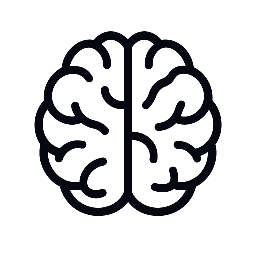
Post-Traumatic Stress Disorder (PTSD) is a mental health condition triggered by experiencing or witnessing a traumatic event. It affects individuals differently, often causing intense, disturbing thoughts and feelings related to the trauma long after the event has ended. Understanding PTSD is crucial for recognising its symptoms, identifying its causes, and exploring effective treatments.
Symptoms of PTSD
PTSD symptoms are generally grouped into four categories:
- Intrusive Memories:
- Recurrent, unwanted, distressing memories of the traumatic event
- Flashbacks, where the individual feels or acts as if the event is happening again
- Nightmares related to the trauma
- Severe emotional distress or physical reactions to reminders of the event
- Avoidance:
- Avoiding places, activities, or people that remind one of the trauma
- Avoiding thoughts or feelings related to the traumatic event
- Negative Changes in Thinking and Mood:
- Persistent negative emotions such as fear, horror, anger, guilt, or shame
- Difficulty remembering important aspects of the traumatic event
- Loss of interest in activities once enjoyed
- Feeling detached or estranged from others
- Persistent negative beliefs about oneself or the world
- Changes in Physical and Emotional Reactions:
- Being easily startled or frightened
- Always being on guard for danger
- Self-destructive behaviour, such as drinking too much or driving recklessly
- Trouble sleeping
- Irritability, angry outbursts, or aggressive behaviour
- Difficulty concentrating
Causes of PTSD
PTSD can develop after any event that causes intense fear, helplessness, or horror. Common causes include:
- Combat exposure during military service
- Physical or sexual assault
- Serious accidents, such as car crashes
- Natural disasters like earthquakes or floods
- Terrorist attacks
- Childhood abuse or neglect
- Sudden loss of a loved one
It is important to note that not everyone who experiences trauma develops PTSD. Factors such as the intensity of the trauma, personal history, and support systems can influence the likelihood of developing the disorder.
Treatments for PTSD
Effective treatment for PTSD often involves psychotherapy, medication, or a combination of both:
- Psychotherapy:
- Cognitive Behavioural Therapy (CBT): Helps patients identify and change negative thought patterns related to the trauma.
- Exposure Therapy: Gradually exposes individuals to trauma-related memories or situations in a safe environment to reduce fear.
- Eye Movement Desensitisation and Reprocessing (EMDR): Utilises guided eye movements to help process traumatic memories.
- Group Therapy: Provides support and understanding from others with similar experiences.
- Medications:
- Antidepressants such as selective serotonin reuptake inhibitors (SSRIs) can help control symptoms of depression and anxiety.
- Prazosin may be prescribed to reduce nightmares.
- Other medications might be used to address specific symptoms like insomnia or irritability.
Conclusion
PTSD is a serious but treatable condition. Early recognition and intervention are essential for effective management. If you or someone you know is struggling with symptoms of PTSD, seeking professional help can lead to recovery and improved quality of life. Awareness and understanding are the first steps toward support and healing.


Leave a Reply